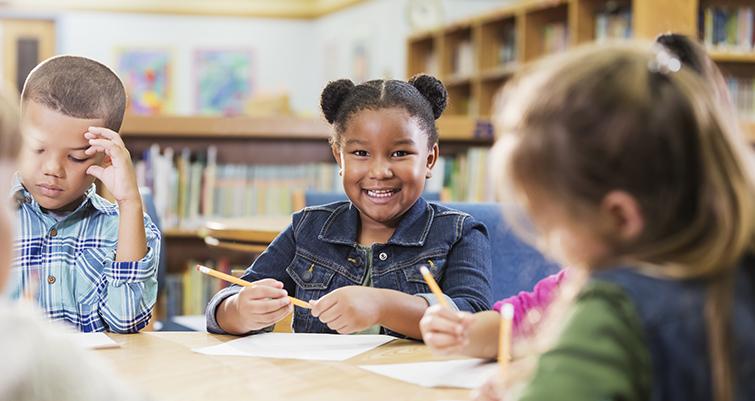Supporting Student Well-Being and Learning: A Transition Tool

School administrators are often pulled in many different directions throughout the school day, and they need resources to help them prioritize schools’ and districts’ needs, particularly concerning student well-being and learning. Research has shared ideas on how best to support the social-emotional health of students, and the AIR and New Pedagogies for Deep Learning co-developed resource, Supporting Student Well-Being and Learning: A Transition Tool, is designed to provide district leadership teams with the tools to implement effective approaches to addressing student mental health and learning.
The toolkit has three elements to help school and district leadership teams begin the work:
- Transition Phase Guidelines. These recommendations guide the transition from feeling locked into an unsatisfactory status quo to building the new system. The guidelines help schools and districts navigate the difficult issues of “getting started.”
- Change Readiness Checklist. This checklist helps focus school and district transitions while making daily decisions regarding immediate needs.
- Action Lenses. These three lenses provide a compass to help schools and districts focus on the interrelated elements of powerful whole-child approaches. Like the checklist, these lenses can help school and district leadership teams make better decisions regarding pressing short-term needs since they focus on what is necessary for deeper change and more positive outcomes. The three lenses, which could also be considered a “North Star,” are:
- Positive developmental relationships grounded in safety and development
- Rich learning experiences linked to new skills, mindsets, and habits
- Integrated support systems
These action lenses are grounded in the Guiding Principles for Equitable Whole Child Design, allowing students to thrive in school and their community.
The toolkit was developed in collaboration with Michael Fullan, the co-director of New Pedagogies for Deep Learning, and John Malloy, the San Ramon Valley Unified School District superintendent.

